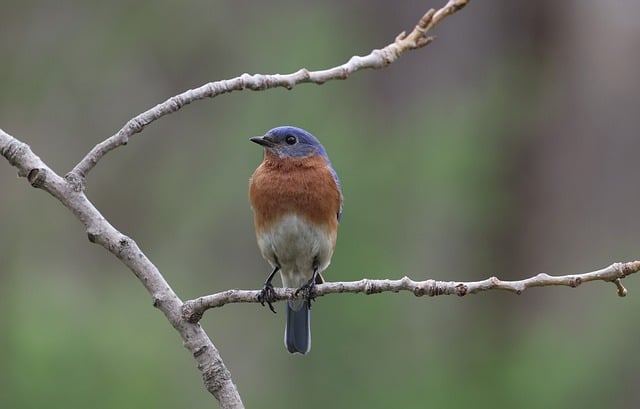Adopting sustainable backyard practices goes beyond aesthetics, offering significant environmental benefits. Eco-friendly methods like native plant and drought-tolerant landscaping, permaculture design, and backyard composting reduce impact, conserve water, support local wildlife, and improve soil health. These green infrastructure solutions create low-maintenance oases, enhancing outdoor spaces while contributing to a healthier ecosystem. Key ideas include sustainable backyard design, eco-friendly landscaping, drought-tolerant gardening, native plant choices, water-efficient practices, permaculture principles, and backyard composting for an aesthetically pleasing and ecologically responsible outdoor space.
Transform your backyard into a thriving, sustainable oasis with green infrastructure solutions. In today’s world, adopting eco-friendly practices is not just trendy but essential for our planet’s health. This article explores the myriad benefits of a sustainable backyard, from environmental impact and water conservation to creating diverse habitats. We delve into innovative landscaping designs, such as native plant gardens and drought-tolerant flora, and efficient water management techniques like rain barrels and permaculture design. Get inspired to create a lush, green sanctuary that contributes to biodiversity and fosters a harmonious relationship with nature.
The Benefits of a Sustainable Backyard
A sustainable backyard offers a multitude of benefits that extend far beyond aesthetics. By adopting eco-friendly landscaping practices, such as native plant landscaping and drought-tolerant gardening, homeowners can significantly reduce their environmental footprint. These green backyard ideas not only conserve water, a precious resource, but also provide habitats for local wildlife, contributing to biodiversity.
Integrating permaculture design principles and practicing backyard composting enhances the ecological value of your outdoor space. Sustainable garden design encourages a holistic approach where every element serves a purpose, from organic waste reduction to improved soil health. These practices not only foster a healthier ecosystem but also create a vibrant, low-maintenance oasis that can be enjoyed for years to come, making it a wise choice for environmentally conscious individuals.
– Environmental impact and contribution to biodiversity
Green infrastructure solutions for your backyard landscaping not only enhance aesthetics but also play a crucial role in mitigating environmental impacts and contributing to biodiversity. By adopting eco-friendly practices, such as native plant landscaping and drought-tolerant gardening, you support local ecosystems and wildlife habitats. Native plants, for instance, provide food and shelter for indigenous species, fostering a rich biodiversity right in your backyard. This approach also helps preserve the region’s unique flora and fauna, making your sustainable backyard a haven for nature lovers.
Incorporating permaculture design principles, like composting and water-efficient practices, further reinforces the environmental benefits. Backyard composting reduces organic waste and creates nutrient-rich soil, promoting healthier plants. Additionally, drought-tolerant landscaping conserves water resources, ensuring your garden thrives even during dry spells. These green backyard ideas not only contribute to a more sustainable environment but also offer practical solutions for resilient and low-maintenance gardens that can flourish with minimal intervention.
– Water conservation and reduction of urban heat island effect
Incorporating green infrastructure into your backyard landscaping offers a multitude of benefits, especially when it comes to water conservation and mitigating the urban heat island effect. By adopting eco-friendly practices like drought-tolerant native plant landscaping, homeowners can significantly reduce their water usage while creating vibrant, sustainable gardens. These plants are specifically adapted to local conditions and require less irrigation, helping to conserve precious resources during droughts.
Additionally, permaculture design principles, such as backyard composting and efficient watering systems, further enhance water conservation. Compost enriches the soil, reducing the need for chemical fertilizers and conserving water by promoting healthier, stronger plants. Efficient watering methods, like drip irrigation or soaker hoses, deliver water directly to plant roots, minimizing evaporation and waste. These strategies not only contribute to a greener, more vibrant backyard but also play a vital role in creating a more sustainable and resilient urban environment.
Eco-Friendly Landscaping Designs for Your Green Backyard
Transform your backyard into a lush oasis with eco-friendly landscaping designs that promote sustainability and beauty. Opting for native plant landscaping is an excellent way to attract local wildlife, reduce water usage, and create a vibrant garden. Choose drought-tolerant plants that thrive in your region’s climate, ensuring a water-efficient backyard that requires less irrigation.
Permaculture design principles can guide you in creating a self-sustaining ecosystem. Incorporate features like compost piles for backyard composting, allowing you to recycle organic waste and enrich the soil naturally. Sustainable garden design also emphasizes efficient space utilization, encouraging vertical gardening, raised beds, and multi-purpose plants to maximize your green backyard’s potential.
Transforming your backyard into a sustainable oasis not only enhances your living space but also contributes to the health of our planet. By adopting eco-friendly landscaping practices, such as native plant gardening, drought-tolerant designs, and permaculture principles, you can create a beautiful, low-maintenance garden that conserves water and supports local ecosystems. Backyard composting adds another layer of sustainability by recycling organic waste into nutrient-rich soil amendments. These green infrastructure solutions not only reduce environmental impact but also foster a deeper connection with nature, making your outdoor space truly exceptional and eco-friendly.
